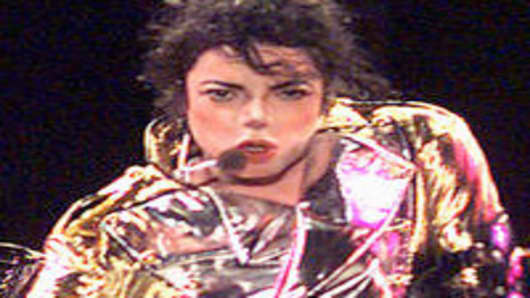Business aside, Branca and McClain—a judge has named them special administrators and could decide in October to name them permanent executors—remain at odds with Katherine Jackson, Jackson’s mother, who is a beneficiary of 40 percent of the estate. In July, Mrs. Jackson sought to wrest control of the estate from the executors, but was denied by a judge.
“Both McClain and Branca certainly are aware of our intentions to have Mrs. Jackson have a seat at the table, because I believe that her sensibilities with respect to the legacy of Michael bring a very important and valuable dimension to any kind of plans,” said L. Londell McMillan, a lawyer for Mrs. Jackson.
More recently, Jackson and her legal team have sought, in behind-the-scenes negotiations, to have her named as an additional executor or as a co-trustee, a move that Branca and McClain have resisted, partly because they say that having a beneficiary also serve as a trustee could result in more taxes being owed.
Instead, a more likely possibility is that another member of the Jackson family would be named as a co-executor or co-trustee, according to Branca.
McMillan said of the potential negative tax implications, “that’s not a legal position we support. The research we’ve done allows for tax avoidance with respect to our request.”
While Jackson’s will stipulated that Branca and McClain had authority over running the business affairs of the estate, they are aware that their efforts will be more successful if relations with the Jackson family are collegial. Branca said, “We’ve always been open to a dialogue with Mrs. Jackson about what is best for the estate.”
Jackson’s estate has been valued at several hundred million dollars. It contains some big assets, including a 50 percent stake in Sony/ATV, a music publishing partnership that includes the rights to the Beatles catalog; Jackson’s own song catalog; and Neverland Ranch. But there also are large debts, because of Jackson’s free-spending ways. While Jackson’s portion of Sony/ATV was worth an estimated $500 million at the time of his death, he had about $300 million of debt against it held by Barclays.
Despite speculation, Branca said, “we do not contemplate selling any portion of Sony/ATV.”
Beyond 2009, Branca and others estimate the business of Michael Jackson could generate about $50 million to $100 million annually.
“We are very optimistic about the revenue we will generate,” said Howard Weitzman, a lawyer for Branca and McClain. “But we also have to be sober about the debt the estate has.”
The overall value of Jackson’s business, were it to be sold in the future like Presley’s was, would most likely be several hundred million dollars, said Mark Roesler, chairman of CMG Worldwide, a licensing firm that has worked with the estates of Presley, Marilyn Monroe and James Dean.
“You have someone who left a mark on six billion people in the world,” Roesler said.
“If you put a value of $110 million on Elvis Presley’s intellectual property rights, that’s a baseline. It’s certainly in the hundreds of millions of dollars.”
Neverland Ranch itself could become a future moneymaker, just like Elvis Presley’s Graceland. Some family members hope that Jackson will be buried there, but that decision has not been made. Neverland is owned in partnership with Colony Capital, a Los Angeles real estate company that stepped in when Jackson was on the brink of foreclosure.
Another idea is to establish a permanent Michael Jackson attraction in Las Vegas, which would house the late singer’s memorabilia. This option may be preferable to Neverland, because Las Vegas is more easily accessible to tourists.
In life, Jackson faced a precarious financial future, as he piled on debts to finance his tastes in art, to travel on private jets and to keep up Neverland. In death, his estate may enjoy the financial security he never had.
—This story was originally featured in the New York Times.


